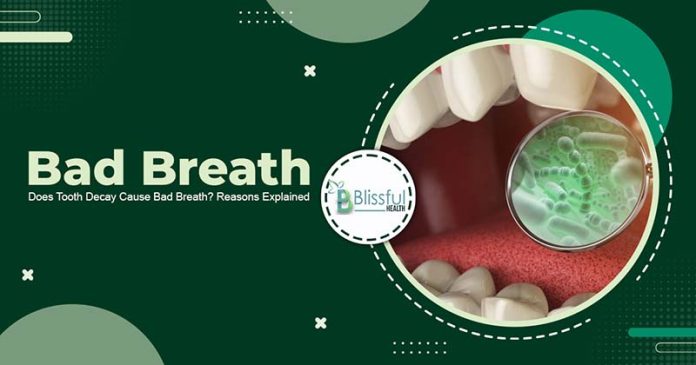Cavities are common dental issues, affecting approximately 90% of individuals over the age of 20, and many experience them multiple times. It is well-known that cavities can damage teeth and even lead to tooth loss. However, what is less commonly understood is their association with bad breath, or halitosis.
Does tooth decay cause bad breath? Indeed, cavities can significantly contribute to bad breath. Therefore, if you’re struggling with halitosis, addressing any cavities might be crucial to improving your breath. Let’s explore why cavities and bad breath often occur together.
Why Does Tooth Decay Cause Bad Breath?
Having a cavity can indirectly lead to bad breath. You might notice a sour or bitter taste in your mouth that just won’t go away, even after brushing, and this isn’t just a problem for adults – kids can experience it too.
When you have a cavity, also known as tooth decay, it means there’s a tiny hole in your tooth where the enamel has broken down. This breakdown occurs when sticky bacteria, called plaque, builds up on your teeth. When you eat starchy or sugary foods, these bacteria feast on them, producing acids that eat away at your tooth enamel.
Not all mouth bacteria are harmful, but some can still give off a bad smell or taste. This is often the case with the bacteria found in plaque associated with cavities. So, it’s not the cavity itself that smells bad, but rather the bacteria underneath.
Additionally, a 2021 review noted that bacterial accumulation on the tongue is another frequent cause of bad breath. It’s possible that this accumulation contains the same smelly plaque that contributes to cavities.
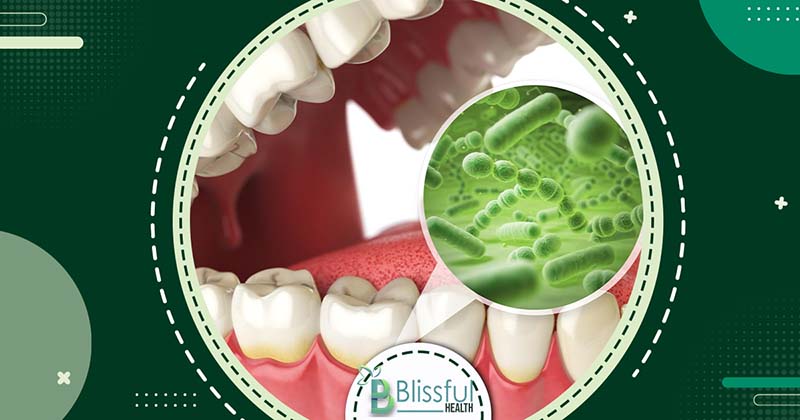
What Are the Effects of Bad Breath from Tooth Decay?
Bad breath from cavities, also known as halitosis, can bring about several uncomfortable and potentially serious consequences:
Social and Psychological Impact: Bad breath can be a source of embarrassment and anxiety, leading to decreased self-confidence and withdrawal from social interactions. It can affect personal relationships and professional interactions, with others possibly keeping their distance or avoiding close contact.
Progression of Dental Problems: Bad breath from tooth decay might indicate more severe dental issues. If left untreated, decay can lead to deeper infections in the teeth and gums, potentially causing pain, tooth loss, and the need for extensive dental procedures such as root canals or extractions.
Gum Disease: The same bacteria responsible for tooth decay can also contribute to gum disease, known as periodontitis. Gum disease is a serious condition that can lead to the deterioration of gum tissue and the bones supporting teeth, eventually causing teeth to become loose or fall out.
Increased Health Risks: Studies have demonstrated a connection between oral health and overall health. Poor oral hygiene and tooth decay can be linked to an increased risk of several systemic diseases, including heart disease, diabetes, respiratory infections, and complications during pregnancy.
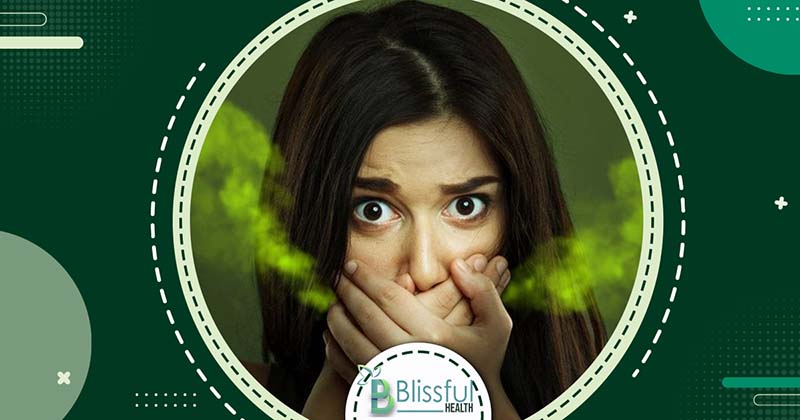
What Are the Best Treatments for Bad Breath from Tooth Decay?
Here are 11 effective ways to combat bad breath caused by tooth decay:
- Remove Dentures at Night: If you wear dentures, take them out at night and clean them thoroughly to remove bacterial buildup from food and drinks.
- Stay Hydrated: Drink plenty of water and swish it around in your mouth, especially in the morning, to freshen up your breath.
- Maintain Good Oral Hygiene: Brush your teeth after every meal and floss regularly, ideally twice a day.
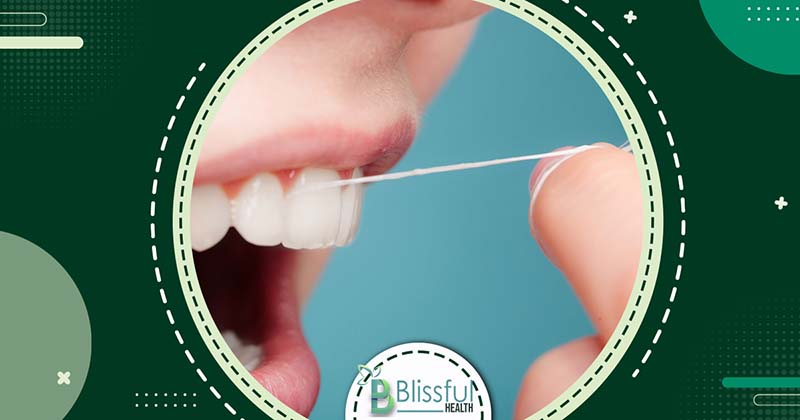
- Replace Your Toothbrush: Change your toothbrush every two to three months to ensure effective cleaning.
- Visit Your Dentist: Schedule regular dental checkups and cleanings to keep your teeth and gums healthy.
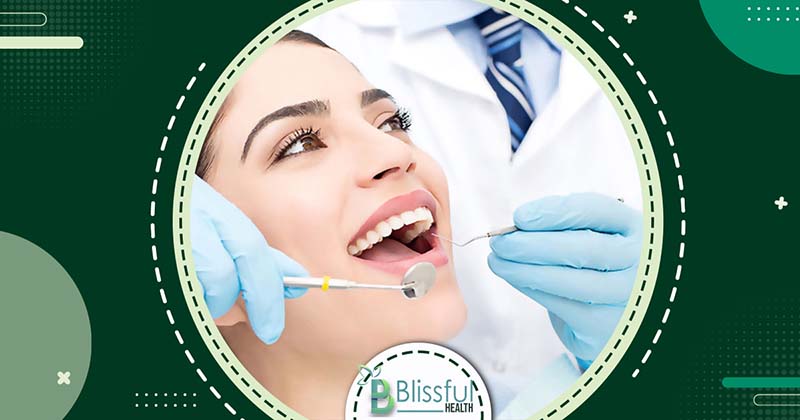
- Scrape Your Tongue: Use a tongue scraper or spoon every morning to remove bacteria, fungi, and dead cells from the surface of your tongue, which can contribute to bad breath.
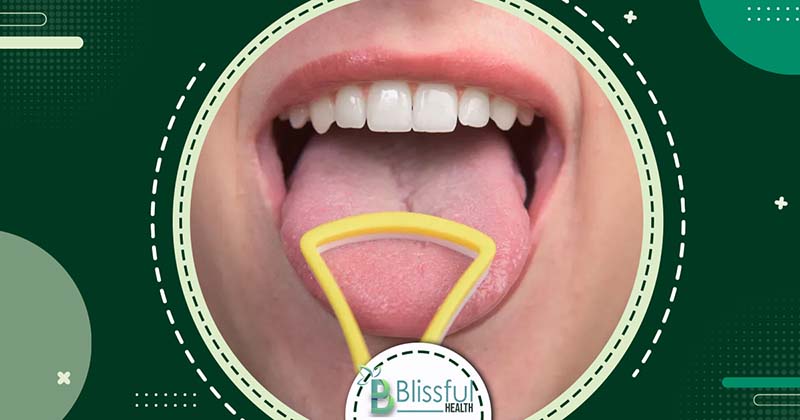
- Chew Cloves, Fennel Seeds, or Aniseeds: These have antiseptic properties that can combat hali tosis-causing bacteria.
- Chew Lemon or Orange Rind: After washing thoroughly, chewing on citrus rinds can stimulate saliva production, which helps fight bad breath.
- Chew Fresh Herbs: Chewing on parsley, basil, mint, or cilantro can neutralize odors, thanks to the chlorophyll content in these greens.
- Use Alcohol-Free Mouthwash: Opt for an alcohol-free mouthwash to avoid drying out your mouth. You can make your own rinse by mixing water with baking soda and a few drops of peppermint essential oil, which has antimicrobial properties. Remember not to swallow it.
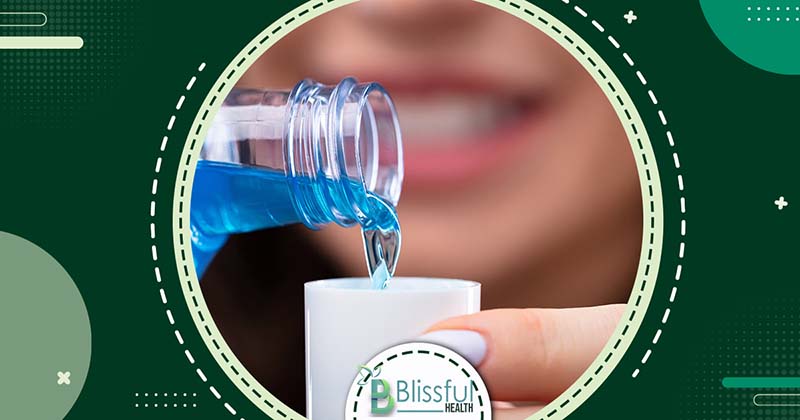
- Practice Good Oral Habits: Maintain good oral habits consistently to keep bad breath at bay.
Following these tips can help you combat bad breath caused by tooth decay and improve your overall oral health.
How Can You Prevent Bad Breath from Tooth Decay?
To reduce or prevent bad breath stemming from tooth decay, here are some practical steps you can take:
Boost Your Brushing and Flossing Habits: Brush your teeth twice a day using fluoride toothpaste to sweep away food debris and plaque. Don’t forget to brush after meals too. Consider keeping an extra toothbrush at work or school for a quick post-lunch clean. Change your toothbrush every 2 to 3 months or following an illness. Use dental floss or an interdental cleaner daily to remove food and plaque from between your teeth.
Choose Gum Over Mints: Opt for sugarless gum instead of mints to stimulate saliva production, which helps cleanse your mouth. Gum and mints with xylitol are ideal since they don’t feed the bacteria in your mouth.
Maintain Gum Health: Use an antiseptic mouthwash to kill bacteria that lead to bad breath and prevent gum disease.
Kick Tobacco Habits: If you smoke or use tobacco products, consider seeking advice from your dentist on how to quit.
Eat Crunchy Fruits and Vegetables: Foods like apples, carrots, and celery help clean plaque and food particles from your mouth.
Keep a Food and Medication Log: If you suspect certain foods or medications are affecting your breath, keep a detailed log and discuss it with your dentist.
These tips not only keep your breath fresh but also enhance your overall oral health. Stay proactive and keep your smile bright and your breath fresh!
When to Contact a Dentist
If you suspect you have a cavity or if you’ve been dealing with persistent bad breath that doesn’t improve despite regular brushing and flossing, it’s wise to reach out to a dentist for guidance and assessment.
Additionally, you should consider scheduling a dental appointment if you experience any of the following:
- Tooth pain
- Bleeding gums
- Swelling or pain in your gums
- Loose adult teeth
- A white coating on your tongue
- Mouth ulcers
These symptoms could indicate various dental issues, and seeking professional care promptly can help address any underlying problems and prevent further complications.
Conclusion
In short, if you ask ” Does tooth decay cause bad breath?” the answer is definitely yes. Tooth decay creates an environment for bacteria to thrive, creating odorous compounds that lead to halitosis. Maintaining good oral hygiene—brushing, flossing, and getting regular dental checkups—is important not only to prevent cavities but also to help prevent bad breath.
Treating tooth decay promptly not only protects your teeth; it also helps improve your breathing. Worried about persistent bad breath? Don’t hesitate to contact us for a thorough assessment of your oral health and personalized treatment options.
Take control of your oral hygiene with Blissfulhealth, prevent cavities and say goodbye to bad breath once and for all!


